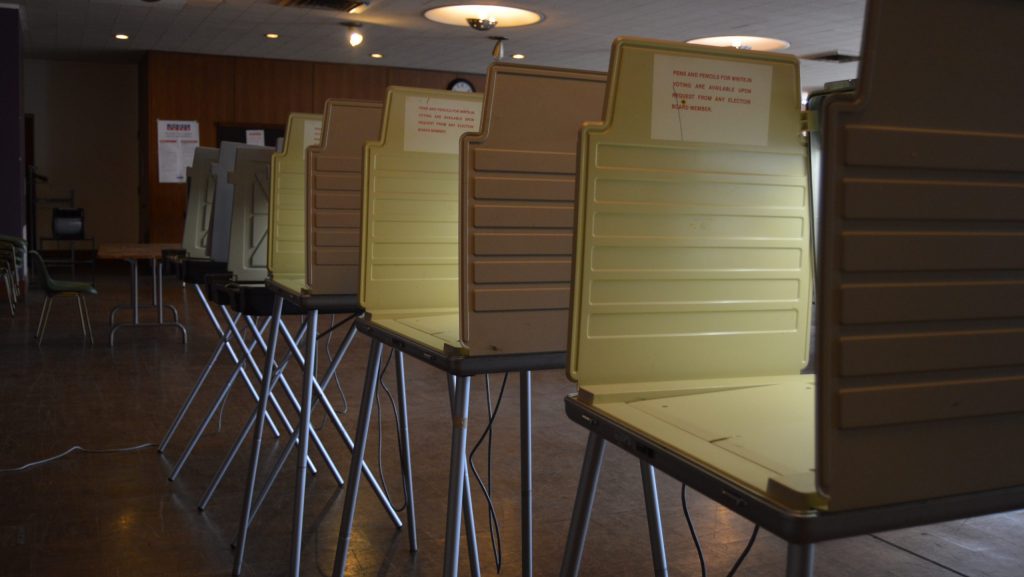Detroit’s Proposal R: Reparations Are About Taking Responsibility for Past Wrongs, Attorney Says
Karissa Wallace, an attorney and member of the Detroit Charter Revision Commission, says if we continue “to turn a blind eye” to systemic racism, “we are all responsible for allowing these policies to continue moving forward.”

If approved by voters on Tuesday, Proposal R would create a new city task force to study the idea of reparations. The task force would “make recommendations for housing and economic development programs that addressed historical discrimination against the Black community here in Detroit,” according to the resolution spearheaded by City Council President Pro Tem Mary Sheffield to place it on the Nov. 2 ballot.
“From my perspective, this is not about ascribing blame, but this is about taking responsibility.” – Karissa Wallace, attorney and member of the 2018 Detroit Charter Revision Commission
Reparations are about making amends for past wrongs, says Karissa Wallace, an attorney who served on the Detroit Charter Revision Committee, which called for a reparations task force in the proposed charter that voters rejected in August.
“When we’re thinking about reparations, I think a lot of times we get focused on money and paying out money to individual persons,” Wallace says. “I think the best way for us to think about it is making amends for these structural and policy errors that were made in the past by instituting policies and legislation. That is intended to correct these lingering effects of the institution of slavery.”
Listen: Karissa Wallace on how Detroit played a role in slavery and anti-Black policies.
Guest
Karrisa Wallace is an attorney who served as a member of the Detroit Charter Revision Commission. She says Proposal R leaves open some questions that the charter commission aimed to address in terms of the task force’s powers, duties and structure.
“The current proposal that is on the table calls for the creation of a commission to look into issues related to water sanitation, environmental health, rights to safety, recreation, housing, etc.,” Wallace says. “And it puts broad powers in City Council, in the task force that they create to do that work.”
Wallace says if voters approve the measure, she hopes there is a clear delineation of who will sit on the task force to ensure it’s a robust process, the task force’s duties and the kind of information it will gather.
“The other piece that I think is really important that should be clearly delineated if this proposal passes is the timing,” Wallace says. “How much time will it take for City Council to put this task force together? How much time will this task force have to put together their initial recommendations? And what are the requirements to City Council to hold public hearings to hear the recommendations that come forth from this commission? All of those things were very clearly delineated in the proposal that the charter commission had proposed and those are some areas where we hope City Council could be a little bit more explicit if this proposal passes.”
When the idea of reparations is approached from the perspective of assigning blame, Wallace says that may lead to people being hesitant about getting involved. But people can’t “continue to turn a blind eye” to allow systemic racism to continue.
“From my perspective, this is not about ascribing blame, but this is about taking responsibility,” Wallace says. “None of us were here when slavery was an institution. None of us were on this earth. A few of us were on this earth when Jim Crow, segregation and other blatantly anti-Black policies were existing, but we all have a responsibility now to improve the systems that we have to live in.
“We’re not expecting the city of Detroit to be able to solve all of the issues,” she says. “That being said, the city, we know from historical documents, did play a role in the institution of slavery and anti-Black policies, and it is incumbent upon us to take responsibility for that which is in our control.”
Trusted, accurate, up-to-date.
WDET strives to make our journalism accessible to everyone. As a public media institution, we maintain our journalistic integrity through independent support from readers like you. If you value WDET as your source of news, music and conversation, please make a gift today.
